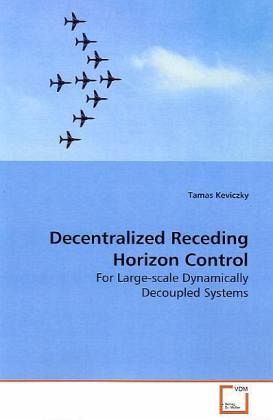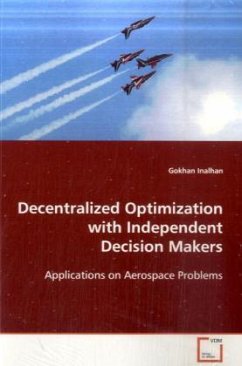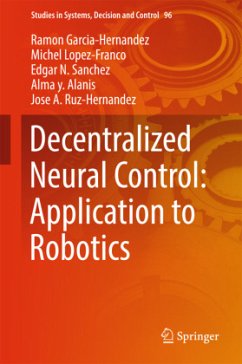
Decentralized Receding Horizon Control
For Large-scale Dynamically Decoupled Systems
Versandkostenfrei!
Versandfertig in 6-10 Tagen
39,99 €
inkl. MwSt.

PAYBACK Punkte
20 °P sammeln!
Large networks of interconnected, independentlyactuated systems can be found these days in a broadspectrum of applications ranging from robotics andformation flight to civil engineering. The abundanceand importance of these systems will continue to growalong with the necessity of avoiding centralizedcontrol design when it becomes computationallyprohibitive or requires unrealistic expectationsregarding information exchange. This book proposes adecentralized optimal control framework usingdistributed Receding Horizon Control (RHC) schemes toaddress this problem, which helps overcome drawbacksof ...
Large networks of interconnected, independently
actuated systems can be found these days in a broad
spectrum of applications ranging from robotics and
formation flight to civil engineering. The abundance
and importance of these systems will continue to grow
along with the necessity of avoiding centralized
control design when it becomes computationally
prohibitive or requires unrealistic expectations
regarding information exchange. This book proposes a
decentralized optimal control framework using
distributed Receding Horizon Control (RHC) schemes to
address this problem, which helps overcome drawbacks
of currently available methods. Stability of the
proposed scheme is analyzed in detail and a number of
methodologies are presented to address the problem of
feasibility. The technique is illustrated by
developing distributed formation control laws for
cooperative Unmanned Air Vehicles (UAVs). The
presented tools and analysis should be especially
useful for systems and controls engineers/researchers
studying constrained optimal control using localized
information, or anyone else who may be interested in
working with large-scale systems and autonomous
vehicle-teams.
actuated systems can be found these days in a broad
spectrum of applications ranging from robotics and
formation flight to civil engineering. The abundance
and importance of these systems will continue to grow
along with the necessity of avoiding centralized
control design when it becomes computationally
prohibitive or requires unrealistic expectations
regarding information exchange. This book proposes a
decentralized optimal control framework using
distributed Receding Horizon Control (RHC) schemes to
address this problem, which helps overcome drawbacks
of currently available methods. Stability of the
proposed scheme is analyzed in detail and a number of
methodologies are presented to address the problem of
feasibility. The technique is illustrated by
developing distributed formation control laws for
cooperative Unmanned Air Vehicles (UAVs). The
presented tools and analysis should be especially
useful for systems and controls engineers/researchers
studying constrained optimal control using localized
information, or anyone else who may be interested in
working with large-scale systems and autonomous
vehicle-teams.












